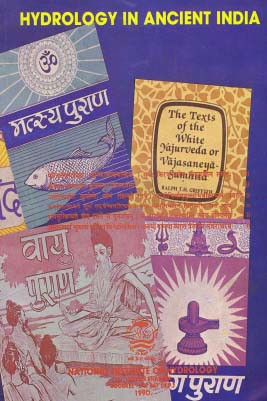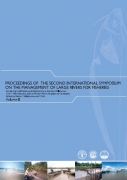/topics/governance
Governance
Plastic waste (management and handling) rules, 2011 notified by MoEF
Posted on 08 Feb, 2011 04:14 PMThese Rules have been brought out following detailed discussions and consultations with a wide spectrum of stakeholders including civil society, industry bodies, relevant Central Government Ministries and State Governments.
Releasing the Rules the Minister of Environment and Forests, Mr. Jairam Ramesh said "It is impractical and undesirable to impose a blanket ban on the use of plastic all over the country. The real challenge is to improve municipal solid waste management systems. In addition to the privatization and mechanization of the municipal solid waste management systems we must be sensitive to the needs and concerns of the lakhs of people involved in the informal sector’’.
Defect in water rate amendment notification issued on 01/10/2010 by Orissa Government
Posted on 08 Feb, 2011 03:40 PMICICI Fellows 2011
Posted on 08 Feb, 2011 10:12 AM ICICI Fellows is a pioneering leadership programme where the Fellows spend two years working on grassroots development projects with NGOs interspersed with modules on management training and leadership development. The entire experience provides Fellows with knowledge, insight and commitment to inclusive growth.
ICICI Fellows is a pioneering leadership programme where the Fellows spend two years working on grassroots development projects with NGOs interspersed with modules on management training and leadership development. The entire experience provides Fellows with knowledge, insight and commitment to inclusive growth.
Hydrology in ancient India - A book by the National Institute of Hydrology (1990)
Posted on 07 Feb, 2011 11:51 PM It attempts at compiling information on various component processes of hydrology and their interaction. The report has been divided into nine chapters dealing with different aspects of hydrology.
It attempts at compiling information on various component processes of hydrology and their interaction. The report has been divided into nine chapters dealing with different aspects of hydrology.
Like other sciences, the science of water too was well developed in ancient India. The report regrets that at present sufficient attention is not paid to our ancient Indian sciences. The study of Sanskrit literature indicates valuable references to hydrology and important concepts of modern hydrology are scattered in various verses of Vedas, Puranas, Meghmala, Mayurchitraka, Vrhat Sanhita and various other ancient Indian works.
Some of the key references are as follows –
- In vedic age, Indians had developed the concept that water gets divided into minute particles due to the effect of sun rays and wind. At various places in the Puranas it is alluded that water cannot be created or destroyed and that only its state is changed through various phases of hydrological cycle.
- Evaporation, condensation, cloud formation, precipitation and its measurement were well understood in India in vedic and puranic times.
- Effect of yajna, forests, reservoirs etc., on the causation of rainfall, classification of clouds, their colour, rainfall capacity etc, forecasting of rainfall on the basis of natural phenomenon like colour of sky, clouds, wind direction, lightning, and the activities of animals was well developed in ancient India well before 10th century BC.
- Contrivances to measure rainfall were developed during the time of Kautilya (4th century BC) which had the same principle as that of modern hydrology except the fact that weight measure (of drone, paia etc.,) were adopted instead of modern linear measurement of rainfall.
- Scientific facts like arid region of Tibetan rain shadow area and no rainfall by polar winds was discussed in the puranas. The knowledge of monsoon winds and height of clouds along with the division of atmosphere was well developed in vedic age.
- The technique of knowing the slope of an area by means of a flowing river and dimensions of meandering rivers along with velocity of flow were developed.
- In ancient times, Indians had well developed concepts of groundwater occurrence, distribution and utilization. Literature also reveals that hydrologic indicators such as physiographic features, termite mounds, soils, flora, fauna, rocks and minerals were used to detect the presence of groundwater.
- Variation in the height of water table with place, hot and cold springs, ground water utilization by means of wells, well construction methods and equipment are fully described in chapter 54 of Vrhat Sanhita (Bruhat Samhita) named as ‘Dakargala’. The fact that sun rays, winds, humidity, vegetation etc are the major causes of evapotranspiration was well realized.
- Varamihira in as early as 550 AD presented a simple method for obtaining potable water from a contaminated source of water. Various plant materials along with the sun heating, aeration, quenching of water with fire heated stones, gold, silver, iron or sand were used. The change in the quality of water with the months of year and suitability of water from different sources for various uses were described.
- Efficient water use, lining of canals, construction of dams, tanks, essential requirements for the construction of good tanks, bank protection methods, spillways and other minor aspects were given due consideration in ancient times in India.
- Well organized water pricing system was prevalent during the times of Kautilya.
- Various references are available in the Vedas alluding the importance of efficient water use so as to reduce the intensity of water scarcity and drought.

An insight on legal aspect of groundwater use by industries and water tax/rate/fee by Emami Paper Mills Limited
Posted on 07 Feb, 2011 06:03 PM- Meaning of Ground Water
- Water located beneath the ground surface.
Groundwater is stored in and moves slowly through layers of soil, sand and rocks called aquifers. Aquifers typically consist of gravel, sand, sandstone, or fractured rock, like limestone.
Latest status of the storage of important reservoirs in the country - CWC - PIB Release
Posted on 05 Feb, 2011 12:17 PMOf these, as many as 36 reservoirs are having significant hydro-power benefits with installed capacities of more than 60MW each. The combined live storage in these 81 reservoirs at the beginning of monsoon, i.e. June 1, 2010 was 14% of their designed capacity and stood at 60% of designed capacity as on January 27, 2011. The present storage is 137% of last year’s storage and 145% of last 10 years average storage during the same period. Out of these 81 reservoirs there are presently 15 reservoirs where this year’s storage is less than 80 % of the average of previous 10 years and in remaining 66 reservoirs the storage is more than 80% of the average of previous 10 years.
Wetlands (Conservation and Management) Rules 2010 - Welcome, but a lost opportunity - Press release by SANDRP
Posted on 04 Feb, 2011 10:33 AMOn the occasion of the World Wetlands Day 2011, while we welcome the notification of Wetland (Conservation and Management) rules 2010 by the Union Ministry of Env
Proceedings of the second international symposium on the management of large rivers for fisheries by FAO and Mekong River Commission
Posted on 03 Feb, 2011 07:55 PM The second international symposium on the management of large rivers for fisheries was held by the Food and Agriculture Organisation of the United Nations (FAO) and Mekong River Commission on 11 - 14 February 2003 in Phnom Penh, Kingdom of Cambodia. It had three primary objectives: (a) To provide a forum to review and synthesise the latest information on large rivers; (b) To raise the political, public and scientific awareness of the importance of river systems, the living aquatic resources they support and the people that depend on them; and (c) To contribute to better management, conservation and restoration of the living aquatic resources of large rivers.
The second international symposium on the management of large rivers for fisheries was held by the Food and Agriculture Organisation of the United Nations (FAO) and Mekong River Commission on 11 - 14 February 2003 in Phnom Penh, Kingdom of Cambodia. It had three primary objectives: (a) To provide a forum to review and synthesise the latest information on large rivers; (b) To raise the political, public and scientific awareness of the importance of river systems, the living aquatic resources they support and the people that depend on them; and (c) To contribute to better management, conservation and restoration of the living aquatic resources of large rivers.
The symposium was organised in six sessions:
Session 1: Status of rivers
Session 2: Value of river fisheries
Session 3: Fisheries ecology and conservation
Session 4: Management of river fisheries
Session 5: Statistics and information
Session 6: Synthesis
It came up with the following recommendations for action -
- Improve the valuation of living river resources in order to contribute to equitable and sustainable management of fishery resources and properly place the fishery in the context of the other uses of rivers.
- Direct greater effort to better understanding the social and economic aspects of fisheries to support policy and management priorities; livelihood approaches will be a valuable tool.
- Communicate and engage with environment and water resources managers within the context of multi-use of water in order to accurately assess impacts and to sustain the benefits of river fisheries in an equitable manner.
- Develop processes that facilitate the users and beneficiaries of the fishery resource to assume greater control of its management.
- Establish appropriate mechanisms at national and basin level to enable negotiation for the needs of communities dependent upon the living aquatic resources. In particular further regulations need to be elaborated to protect general ecosystem function and provide for environmental flows.
- Use instruments such as the freshwater eco-regions approach, the Ramsar Convention and the guidelines for water allocation suggested by the World Commission on Dams, to enhance planning for conservation and sustainable use of river habitats.
- Incorporate ecological flow requirements of river-floodplain systems into development plans and impact assessments that affect river flows, taking into account the seasonality of the system and the environmental cues needed by the fish for migration and reproduction.
- Rehabilitate degraded ecosystems wherever possible. Prioritize schemes that ensure connectivity and protection of critical habitats.
MGNREGA completes 5 years - PIB Release
Posted on 03 Feb, 2011 01:34 PMAddressing a large gathering at Vigyan Bhawan on this occasion in New Delhi, the Prime Minister Dr. Manmohan Singh called upon the states to strengthen the Gram Sabhas for rural empowerment. He said the Ministry of Rural Development and Ministry of Panchayati Raj has jointly chalked out a plan to strengthen the Panchayats. Technical Units will be set up in Gram Panchayats and to improve the managerial efficiency every unit will have a Panchayat Development officer and one Junior Engineer. Focus would be on Left Wing Extremism(LWE) affected districts and the districts where more than Rs.100 crore have been spent under MGNREGA.





